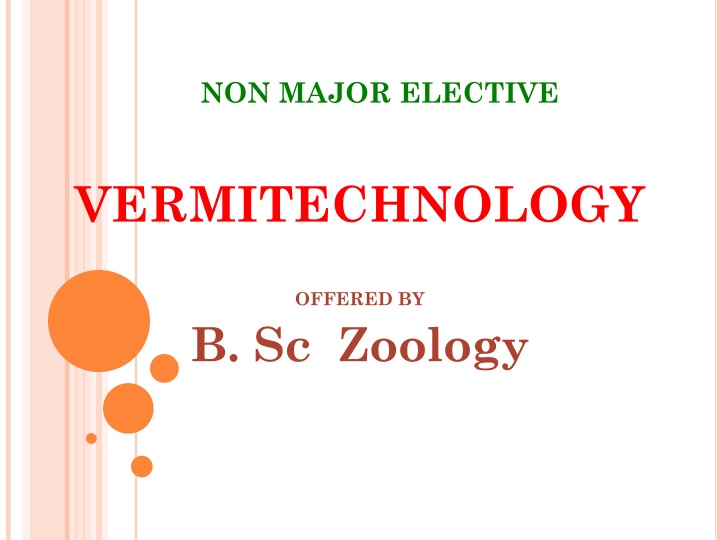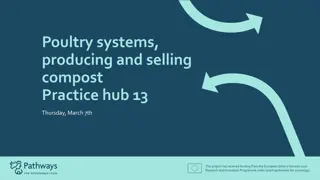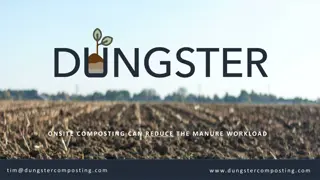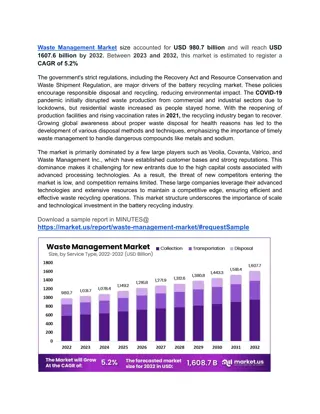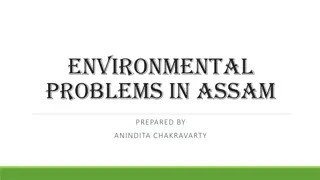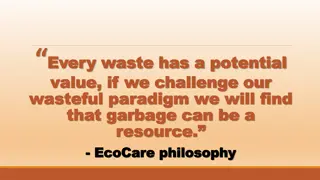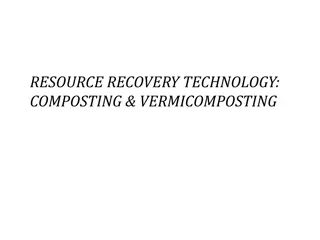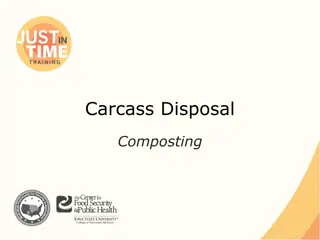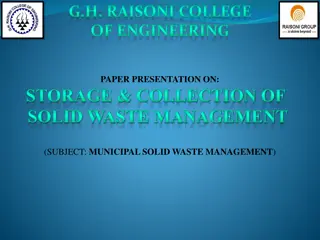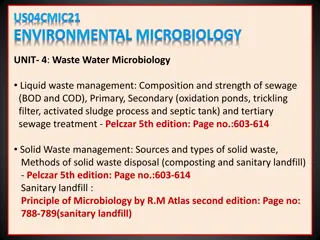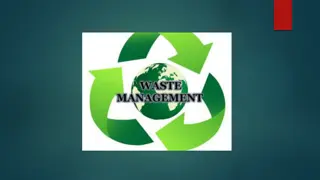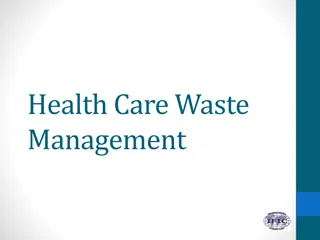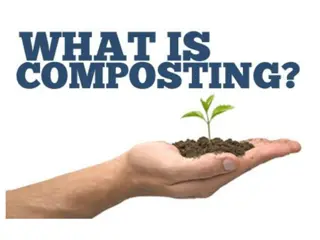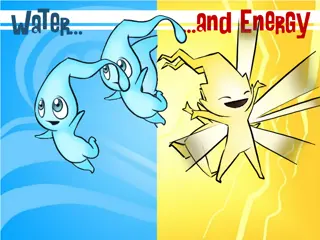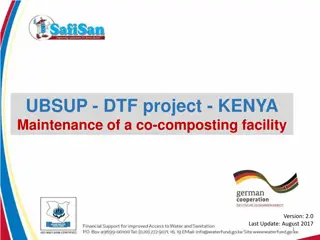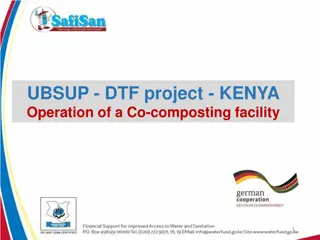Vermitechnology and Composting: Sustainable Waste Management Solutions
Solid waste management is crucial in the face of increasing urbanization. Composting and vermitechnology offer natural and effective ways to treat organic waste, with earthworms playing a key role in bioconversion processes. Utilizing organic wastes like animal manure, crop residues, and food waste, these methods help produce valuable biofertilizers like vermicompost. By understanding the types of earthworms used, species for culture, and the life cycle of earthworms, individuals can implement composting practices in various containers like pits, tanks, and crates. Vermicompost holds significant benefits, promoting plant growth, improving soil quality, reducing the need for harmful chemicals, and enhancing economic and ecological sustainability.
Download Presentation

Please find below an Image/Link to download the presentation.
The content on the website is provided AS IS for your information and personal use only. It may not be sold, licensed, or shared on other websites without obtaining consent from the author.If you encounter any issues during the download, it is possible that the publisher has removed the file from their server.
You are allowed to download the files provided on this website for personal or commercial use, subject to the condition that they are used lawfully. All files are the property of their respective owners.
The content on the website is provided AS IS for your information and personal use only. It may not be sold, licensed, or shared on other websites without obtaining consent from the author.
E N D
Presentation Transcript
NON MAJOR ELECTIVE VERMITECHNOLOGY OFFERED BY B. Sc Zoology
COMPOST Solid environmental challenges facing the world today due to increasing urbanisation. waste is the one of the biggest population and Composting is a natural process of organic waste treatment which is currently practised with various modification to the technology
VERMITECHNOLOGY Vemitechnology is globally becoming a popular solid waste technique management Vermitechnology is a process by which the bioconversion of organic waste into a biofertilizer due to earthworms activity. The earthworms feed on the organic wastes and the earthworms gut acts as bioreactor whereby the vermicasts are produced.
ORGANIC WASTES Animal manure Crop residue Sugarcane trash Vegetable /fruit residue Leaf litter Food waste Any biodegradable waste
TYPES OF EARTHWORMS USED FOR COMPOSTING Anecic : Earthworms feed on decaying organic matters. Which are responsible for cycling organic debris into humus Endogeic: These worms spending their lives deep in the soil where they feed matter and mineral soil particle. These worms build burrows. Epigeic species : These are found in the natural environment in the top soil layer where they feed on decaying organic matter on decayed
SPECIES USED FOR CULTURE Lampito mauritii Perionyx excavatus
WHERE I CAN DO COMPOSTING In pits, crates, tanks, concrete rings, or any containers
SIGNIFICANCE OF VERMICOMPOST Vermicompost is a low cost technology use to treat organic wastes. It stimulates Plant growth and productivity of soil. It also have positive effects on some aromatic and medicinal plants Vermicompost constitute a promising alternative to inorganic fertilizers. Conditioner and its continued application over the years lead to total improvement in the quality of soil and farmland. Vermicompost significantly reduce or even replace the use of dangerous agrochemicals , reduce the demand of water for irrigation, pest and disease control It develops the economy and ecology of the Nation It acts as a Soil
BENEFITS OF LEARNING THE TECHNIQUE You can make use of vermicompost to make your own terrace garden/kitchen/home garden
MARKET OPPURTUNITY Vermicompost organic fertilizer production business has good sale potential If you learn the technology of vermicompost even you can be an entrepreneur in this field
THANK THANK YOU YOU
